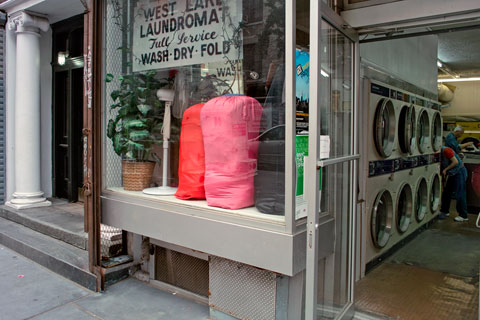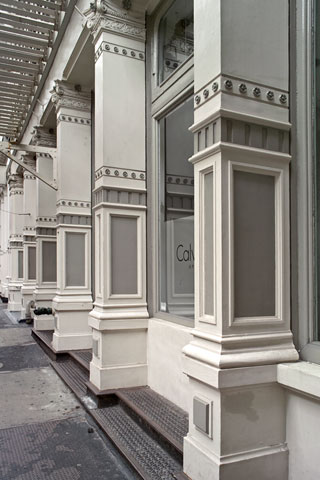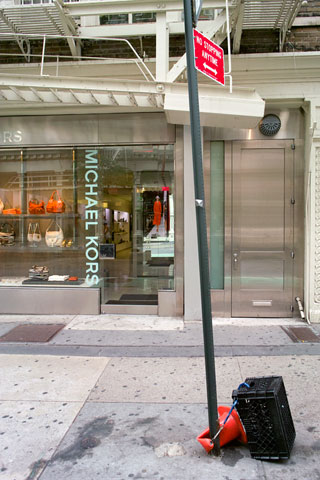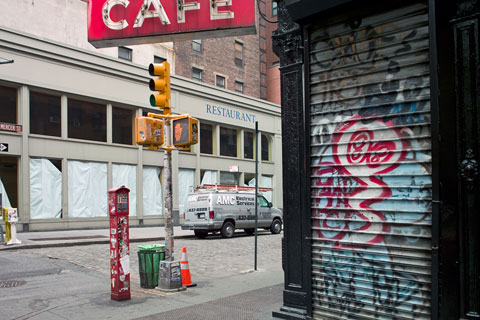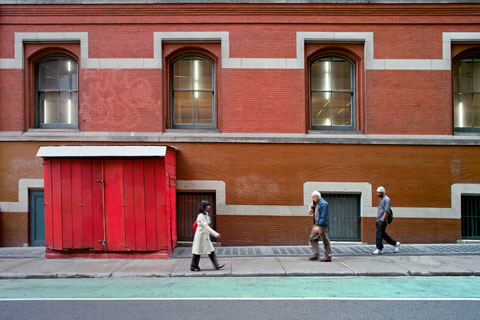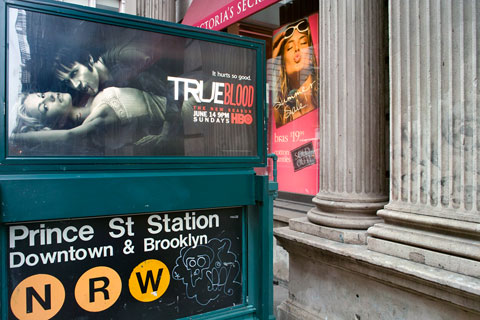My morning ritual during the week consists of taking my son to school on the subway, walking 25 minutes across town through Soho, reading the paper at a cafe on Prince Street near the Bowery, and hitting my desk about 9:30am.
My practice of reading the New York Times, however, may have to end because the Times in its infinite wisdom has, in the midst of a deep recession, just raised the newsstand price of the daily paper from $1.50 to $2.00 (and the Sunday Times from $4 to $6).
One used to see the Times read on the subways, but I haven’t seen one in a long time. People clutch their iPods, cell phones, and other devices–and the ubiquitous free papers are handed out at the subway entrances and lie strewn about everywhere. A surprising number of people continue to read books on the train, gripping their paperbacks in one hand while holding onto a pole with the other. But the unique New Yorker’s skill of folding the Times lengthwise making it manageable to read while standing on a swaying subway train has been lost.
I’ve seen a number of Kindles, the new electronic reader from Amazon, and I expect to see more if and when the price of the hardware comes down. The newspaper can be read on these, and maybe this and other such devices will save the Times. But I wouldn’t bet on it. The regional newspapers will die off first–they’re already beginning to. As anyone reading this or any blog knows, there are now a multitude of different sources of news and information, but I don’t see the Times, and the other big institutions acting nimbly in the face of rapid climate change. It’s not just about the business model–it’s content as well.
When I was 12 years old living in Williamsburg, Virginia, I used to come home each Sunday after church lugging a fat out-of-town newspaper–usually the Times–bought at the local drugstore. It was my portal to the world outside. For most of my life I have read the morning paper while sipping a cup of coffee. It is a simple pleasure, tactile and aromatic, one that I indulged in even during the leanest years. Until, perhaps, now.
